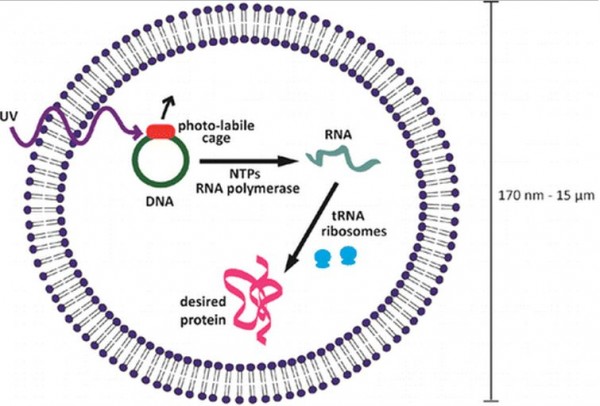A group of scientists from MIT and the University of British Columbia have created nanoparticles that can be remotely activated to produce different types of proteins and, when implanted into living cells, it should distribute those proteins throughout the body. That means, the nanoparticles can be used for remotely activated drug delivery inside the human body. The implications of this discovery would be tremendous in medical science and healthcare.
The scientists engaged in the development of the nanoparticles this have used laser lights to remotely trigger the particles into action. The nanoparticles consist of lipid vesicles filled with the cellular machinery responsible for transcription and translation, including amino acids, ribosomes, and DNA caged with a photolabile protecting group. These particles served as nanofactories capable of producing proteins including green fluorescent protein (GFP) and enzymatically active luciferase.
The technology can open new doors in healthcare. Scientists hope that the discovery “may enable new strategies to facilitate the study of orthogonal proteins in a confined environment” and may facilitate remote drug delivery inside human body.
Source : Gizmocrazed
Special Thanks To : American Chemical Society (ACS)
[ttjad keyword=”samsung-galaxy-s”]



